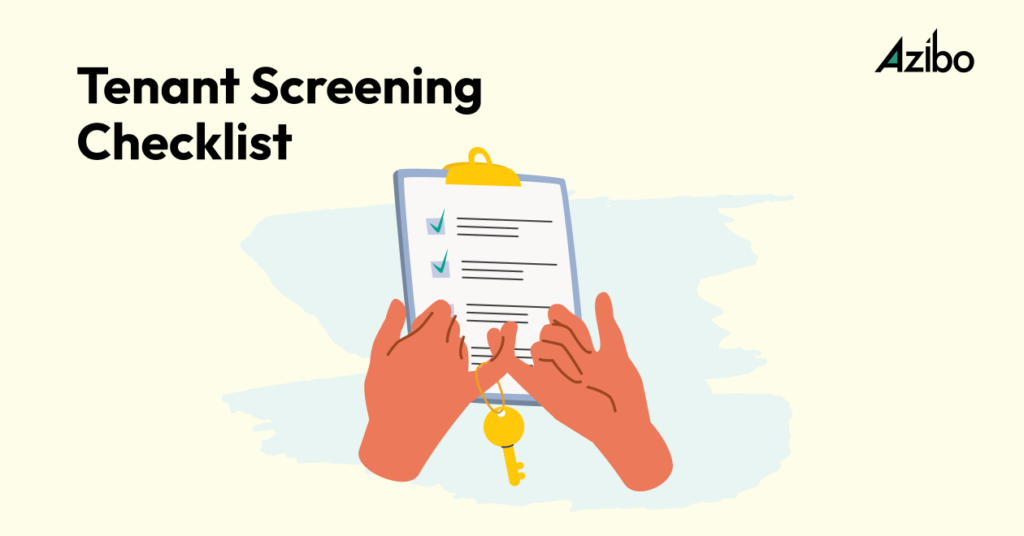Finding the right tenant can mean the difference between steady rental income and costly evictions or property damage. A thorough tenant screening process helps landlords select responsible renters who pay on time, respect lease agreements, and take care of the property.
This guide walks you through how to properly screen tenants to minimize risk and ensure you rent to qualified, trustworthy applicants.
1. Set Clear Rental Criteria
Before accepting applications, establish tenant qualifications to streamline the process.
📌 Key Rental Requirements to Set:
✔️ Income Requirements – Typically 3x the monthly rent.
✔️ Credit Score Minimum – Aim for 650 or higher (flexible for lower-income rentals).
✔️ Rental History – No past evictions, good landlord references.
✔️ Employment Verification – Stable job history for at least 6 months.
✔️ Criminal Background Check – Screening for serious offenses.
🔹 Pro Tip: List your rental criteria upfront in your property listing to avoid unqualified applicants.
2. Require a Rental Application
Have every applicant complete a detailed rental application to gather the necessary information.
📌 What to Include in a Rental Application:
✔️ Personal Information – Full name, contact details, SSN for screening.
✔️ Employment & Income Details – Current job, salary, employer contact.
✔️ Rental History – Previous addresses, landlord contact info.
✔️ References – Employer and past landlords.
✔️ Consent for Background & Credit Check – Required for legal compliance.
🔹 Pro Tip: Use online rental application services like Zillow Rental Manager, Avail, or RentRedi to automate applications.
3. Run a Credit Check
A credit report helps determine if an applicant has a history of on-time payments and financial responsibility.
📌 What to Look for in a Credit Report:
✔️ Credit Score: 650+ preferred, but may vary by market.
✔️ Payment History: Late payments or defaults on loans.
✔️ Debt-to-Income Ratio: If they have excessive debt, they may struggle to pay rent.
✔️ Bankruptcies & Collections: Red flags for financial instability.
🔹 Pro Tip: Use tenant screening services like TransUnion SmartMove, Experian RentBureau, or Equifax for fast and accurate credit checks.
4. Verify Employment & Income
You need to ensure that your tenant has stable income to pay rent on time.
📌 How to Verify Tenant Income:
✔️ Request pay stubs or bank statements (last 2-3 months).
✔️ Call their employer to confirm employment status and income.
✔️ For self-employed tenants, ask for tax returns or profit/loss statements.
🔹 Pro Tip: If a tenant’s income is borderline, ask if they have a co-signer or guarantor.
5. Check Rental History & Landlord References
Previous rental behavior is one of the best indicators of how a tenant will treat your property.
📌 Questions to Ask a Previous Landlord:
✔️ Did the tenant pay rent on time?
✔️ Did they follow the lease agreement?
✔️ Were there any property damages or complaints?
✔️ Did they receive their full security deposit back?
✔️ Would you rent to them again?
🔹 Pro Tip: Be cautious if the applicant refuses to provide landlord references.
6. Conduct a Criminal Background Check
A criminal record doesn’t automatically disqualify a tenant, but certain offenses may be red flags.
📌 What to Look for in a Criminal Background Check:
✔️ Felonies or Violent Crimes – May indicate safety concerns.
✔️ Recent Convictions – More relevant than offenses from 10+ years ago.
✔️ Drug-Related or Property Crimes – Could be a risk to neighbors or your property.
🔹 Pro Tip: Follow Fair Housing Laws—you cannot deny a tenant based solely on an arrest record.
7. Interview the Tenant
A quick phone or in-person interview helps verify information and get a feel for the applicant.
📌 Good Questions to Ask Tenants:
✔️ Why are you moving?
✔️ How long do you plan to stay?
✔️ Have you ever had issues with previous landlords?
✔️ Do you have pets (if applicable)?
✔️ Are you comfortable with a background and credit check?
🔹 Pro Tip: Watch for inconsistent answers or hesitation—these may be red flags.
8. Require a Security Deposit & First Month’s Rent
📌 Standard Deposit Requirements:
✔️ 1-2 months’ rent as a security deposit.
✔️ First month’s rent upfront before move-in.
✔️ Additional pet deposit if applicable.
🔹 Pro Tip: Always document property condition before move-in to avoid deposit disputes later.
9. Follow Fair Housing Laws
Landlords must comply with federal, state, and local Fair Housing Laws when screening tenants.
📌 Illegal Discrimination Factors:
❌ Race, color, religion, sex, national origin
❌ Disability, family status (children, marital status)
❌ Age, sexual orientation, gender identity (varies by state)
🔹 Pro Tip: Keep consistent screening criteria for all applicants to avoid discrimination claims.
10. Make an Informed Decision & Sign a Lease
📌 Final Steps Before Approval:
✔️ Review all background checks, references, and credit reports.
✔️ Choose the best-qualified tenant based on facts, not emotions.
✔️ Have the tenant sign a written lease agreement before move-in.
🔹 Pro Tip: Use state-specific lease agreements to ensure legal compliance.
Proper Tenant Screening Protects Your Investment
A thorough tenant screening process ensures you rent to responsible tenants who pay on time, take care of the property, and follow lease terms.
🏡 Key Takeaways for Landlords:
✅ Set clear rental criteria before accepting applications.
✅ Run credit, income, and background checks on every tenant.
✅ Verify employment and past landlord references.
✅ Follow Fair Housing Laws to avoid discrimination issues.
✅ Always document agreements with a legally binding lease.
🚀 Need help listing your rental and screening tenants?
👉 Find Quality Tenants with Our Rental Services!
“Landlord’s Guide to Screening Tenants: How to Find the Best Renters”
“Learn how to properly screen tenants to find responsible renters. Use credit checks, income verification, and background screenings to protect your property.”
LandlordTips #TenantScreening #PropertyManagement #RentalInvesting #RealEstateTips #ScreeningTenants #LandlordGuide #TenantBackgroundCheck

